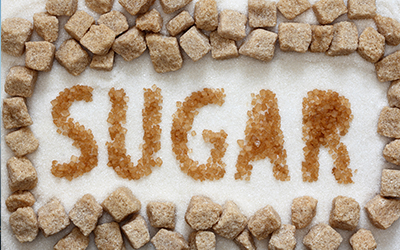Image Credit:
File ID 45080377 | © Stepan Popov | Dreamstime.com

Tooth decay, also known as dental caries or cavities, is one of the most common oral health problems worldwide. It occurs when harmful bacteria in the mouth feed on sugars and starches, producing acids that erode the enamel—the protective outer layer of the teeth. Over time, this erosion can lead to cavities, infection, and even tooth loss if left untreated.
While many people associate cavities with children, adults are equally at risk. Changes in diet, aging, and gum recession all contribute to increased vulnerability. Additionally, those undergoing wisdom teeth extractions or considering a bone graft dental procedure should be particularly mindful of their oral hygiene, as healing tissues can be more susceptible to decay-causing bacteria.
Tooth decay doesn’t happen overnight. Several factors contribute to the process, including:
In patients with advanced periodontal disease treatment needs, gum recession and inflammation are often present, which makes it essential to monitor for early signs of decay.
Tooth decay is not always immediately painful, so recognizing the early signs can help you seek treatment before complications arise. Symptoms may include:
If you experience any of these symptoms, it’s essential to schedule a dental exam. Patients undergoing periodontal disease treatment or other surgical procedures like bone graft dental surgery may notice increased sensitivity, which requires close monitoring to avoid secondary complications.
The good news is that tooth decay is largely preventable. Here are effective strategies to keep your teeth healthy:
For patients undergoing wisdom teeth extractions, maintaining excellent oral hygiene during recovery is crucial to avoid infection and decay near the extraction site.
Additionally, if you’ve been referred for a dental implant evaluation, your provider may recommend a bone graft dental procedure to prepare the jawbone. Preventing tooth decay in surrounding teeth and tissues ensures the best possible outcome for implant success.
Periodontists specialize in treating the structures that support your teeth, including gums and bone. If you’re dealing with advanced decay, especially below the gumline, a periodontist can assess whether periodontal disease treatment is needed alongside cavity repair. They can also perform procedures like dental deep cleanings, gum grafting, and LANAP laser therapy to restore health to compromised areas.
Preventive care isn’t just about avoiding cavities—it’s about preserving the long-term function and health of your smile. Whether you’re recovering from wisdom teeth extractions, preparing for a bone graft dental procedure, or managing chronic gum disease, your dental team can create a customized care plan that addresses both current concerns and future risks.
By staying proactive, informed, and committed to daily oral care, you can significantly reduce your risk of decay and avoid more extensive treatments down the road.